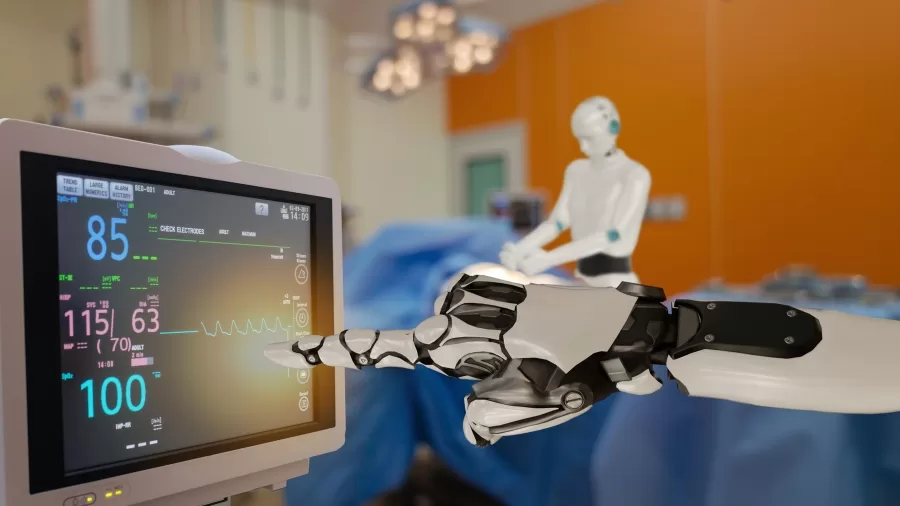Health
Cutting-Edge Care: How Robotic Surgery is Transforming Scottish Healthcare

- Developed in the early 20th century, this operation has developed quite drastically up to today’s robot-operated surgical theatres, where the proficiency of the robot is a lighter highlight among others.
Profound changes are underway in the surgical norms at Glasgow’s Royal Infirmary because of a humanoid robot. With its four mechanical arms, it can be directed with precision by a surgeon via a console to perform selective movements entirely inside the patient’s body. Nevertheless, this advancement in robotic-assisted surgery (RAS) has truly come as a novel and epoch-making factor in the surgery of extremely complex cancers.
Since 2015, robotic surgery in Scotland has gained wider acceptance by spreading across different locations despite few surgeries. Robotic systems have been extensively used for various specialisations, such as thoracic surgery, urology, and pancreatic surgery. Those that have taken place more recently are purely orthopaedic procedures, an example demonstrating how robotic assistance is applicable across burgeoning medicine.
The Impact of Robotic Surgery on Healthcare
In June 2021, the Scottish government agreed to secure 12 da Vinci robotic systems, specifically for cancer treatments like womb and bowel cancer, with a whopping £20 million yearly investment promise. Surgeons go on to say that this device offers a higher finesse and capability of conducting surgeries with maximum precision. Furthermore, they add that the recovery of patients has been quite speedy: fewer complications are encountered because of an RAS intervention.
Robotic-assisted surgery status accounts for practically 1% of the total surgeries that the NHS carries out in Scotland. There is an issue whether it is a vibrant question of opening up further if the high cost—usually coming to around 1.7 million sterling for robots charged apart from all the expenditure in maintaining and running the systems—can be reasonably worked on. Nevertheless, the medical sphere seems to be holding a statement that the increase in RAS investment would automatically lessen the strain on hospitals along with creating a reduction in the days at the hospital for patients and increasing projected money-saving through the procedure over a fairly long period.
Robotic Surgery and Benefits for Patients
Robotic surgery has significantly changed the surgical outcomes for the patients. Open surgery rates have fallen significantly in Scotland, leading to less time in the hospital and lower post-operative complications. The area that excites the experts is the utilisation of robotic surgical instruments for all types of cancer. This increases efficacy and care for the patients.
The ability of RAS to help out with surgical procedures in patients with severe conditions is another advantage. Obesity, which is linked with the growing incidences of gynaecological cancers, is seen as one of the prime issues affecting the community. Traditional surgical methods may not be the best choice for high-risk patients, but the presence of robotic surgery guarantees the most accurate and controlled manner of surgery.
The Future of Robotic-Assisted Surgery
Due to the transformation that is fast-tracking in the Scottish NHS, the government is in the process of evaluating all ranges of technological advances to improve healthcare services. One of several key points will be the deployment of artificial intelligence in diagnostics, whereas an increase in genetic testing to personalise treatment should also be established. Most significant of all will be advancing digital support for mental health and chronic disease management. A newly devised Scottish application for health and social care is under development to provide patients with access to services.
Rising to opportunities in surgery robotics, the vital question will still reside within the balance between innovation and fiscal constraints. As healthcare progresses, health boards ought to seek out which investments are most beneficial for patients. Cafes, on the other hand, need to produce favourable outcomes for their established health care system.
With continual development in surgical robotics and the incorporation of innovative healthcare solutions, Scotland’s NHS could witness a rise in robotics-assisted surgery sooner rather than later. Whether more robotic systems will be bought is yet to be seen; there is nevertheless a broadly accepted view on their potency to enhance patient outcomes and efficiency.



















































